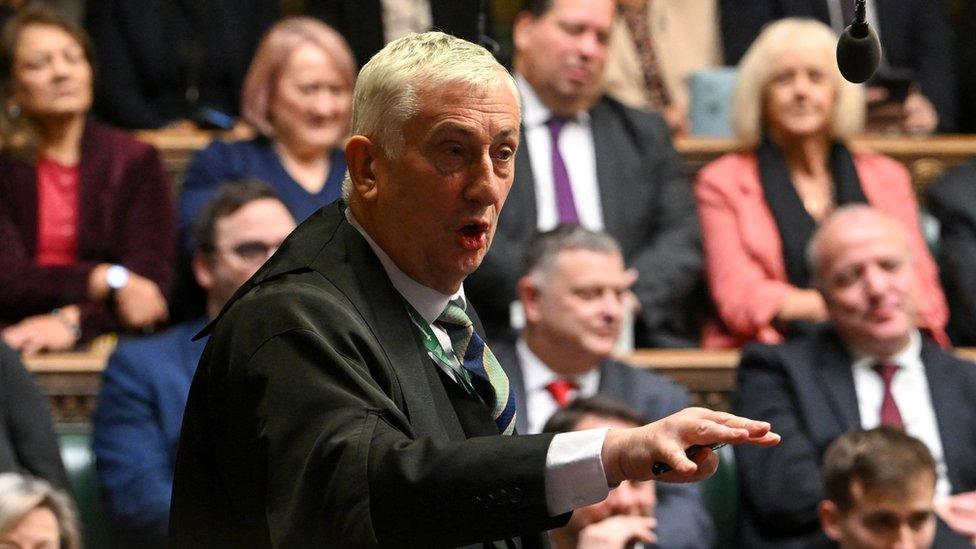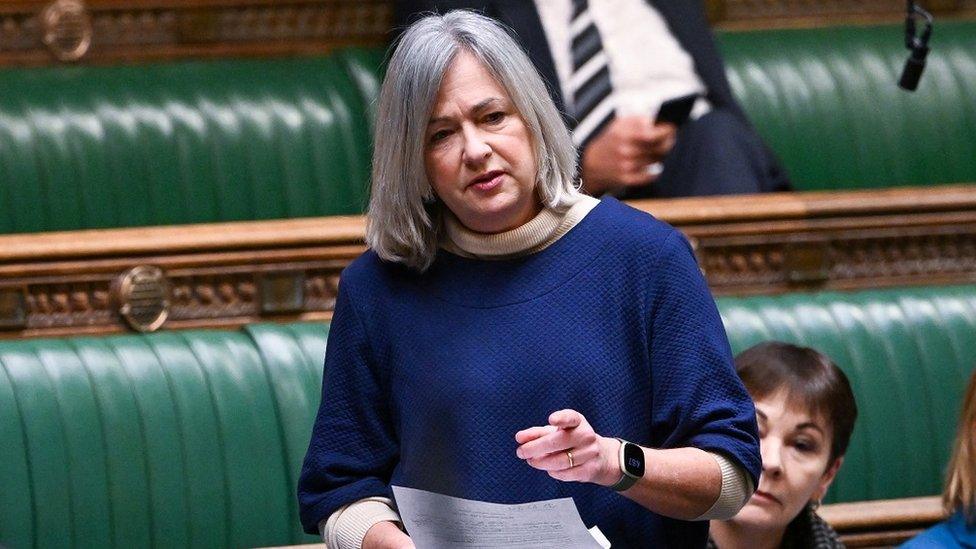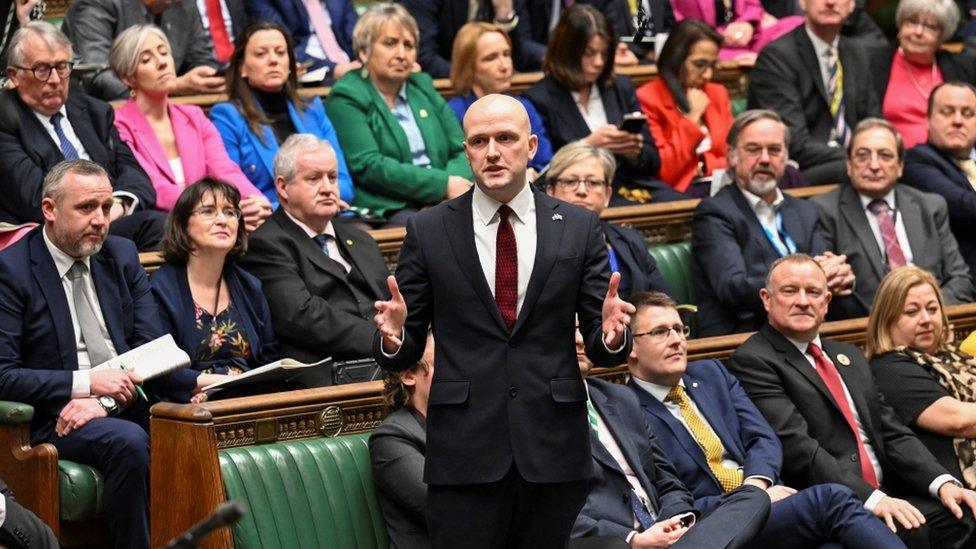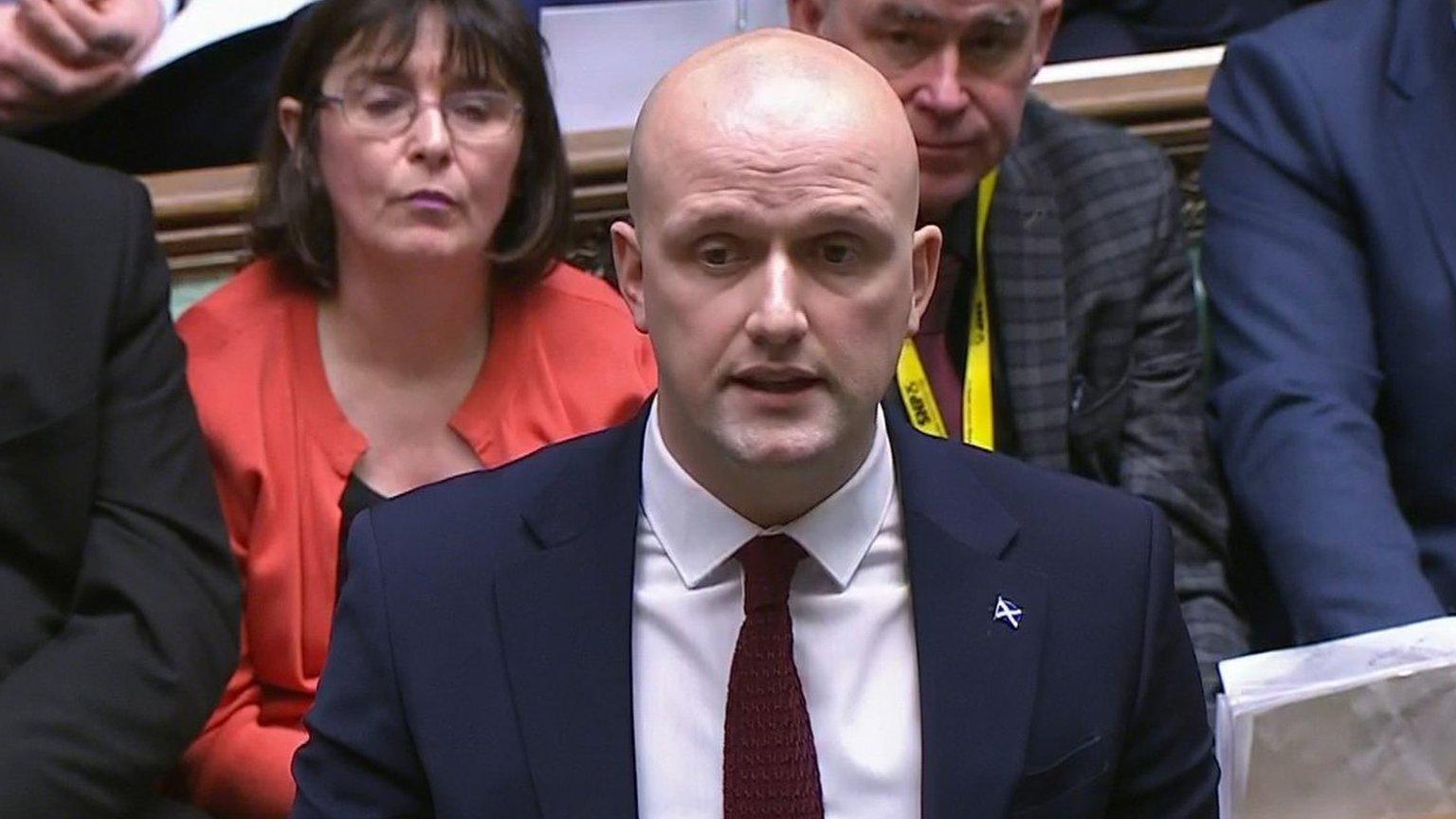Plaid Cymru joins calls for Lindsay Hoyle to quit as Speaker
- Published

Sir Lindsay Hoyle has been criticised for how he handled a vote on calls for a ceasefire in Gaza
Plaid Cymru has backed a motion of no confidence in Commons Speaker Sir Lindsay Hoyle, over his handling of last week's vote on Gaza.
The group's Westminster leader Liz Saville Roberts said the events "brought to light a profound disregard for smaller parties in Westminster".
The party's three MPs join the SNP and some Conservatives in calling for the Speaker to quit.
It means 86 MPs have now signed the motion of no confidence, external.
Losing the support of another party at Westminster piles further pressure on Sir Lindsay.
The Speaker prompted anger from the SNP and Conservative MPs when he broke with convention last week to allow a vote on a Labour amendment to the SNP's motion calling for an immediate ceasefire.
It meant the SNP's motion, which was originally meant to be the focus of the debate, was not voted on.
As a result, some MPs walked out in protest and the debate descended into chaos.
In a letter to the Speaker, Ms Saville Roberts said the debate - which was designated an Opposition Day for the SNP to discuss topics of their choice - had been an opportunity for the party to present a motion "unimpeded".
"But their right - and indeed the whole House's right - to vote on the original motion was quashed with little warning," she said.
Ms Saville Roberts said she had written to Sir Lindsay at the end of last week urging him "to outline how arrangements can be put in place to respect the role of smaller parties in the House, and to ensure that our voices can never again be disregarded as they were on Wednesday night".
However, she said after meeting with him on Monday, "it was clear that no changes would be considered to protect the role of smaller parties or to safeguard a diversity of voices in Parliament".

Liz Saville Roberts is Plaid Cymru's leader at Westminster
Ms Saville Roberts also criticised Sir Lindsay for rejecting the SNP's request for an emergency debate on Gaza this week, saying he had "reneged" on a previous promise.
Earlier, the SNP accused the Speaker of "effectively lying" over the possibility of an emergency debate.
Sir Lindsay explained his decision by saying a ministerial statement on Gaza on Tuesday meant MPs already had an opportunity to discuss the issue.
However, the SNP pointed out that last week he had offered the party an emergency debate, after apologising for his handling of the original vote.
Sir Lindsay had argued that allowing a vote on Labour's amendment meant MPs could express their views on the "widest range of propositions", helping to protect them from threats to their safety amid heightened scrutiny over their stance on the conflict.
However, the decision meant Labour avoided a potentially damaging rebellion over whether it supported the SNP's ceasefire call, which went further by calling for an end to the "collective punishment of the Palestinian people".
This led to accusations, which have been denied by the party and Sir Lindsay, that Labour had put pressure on the Speaker over the decision.
The no confidence motion in Sir Lindsay is known as an "early day motion". Very few of these are debated and they are not binding but they allow MPs to show their support for an issue.

JUNE: VOICE OF A SILENT TWIN: The tragic story of June, her sister and their life in Broadmoor
THE LEARNERS IS BACK: It's a new term for Jonesy's merry band of students

Related topics
- Published27 February 2024

- Published27 February 2024

- Published26 February 2024
